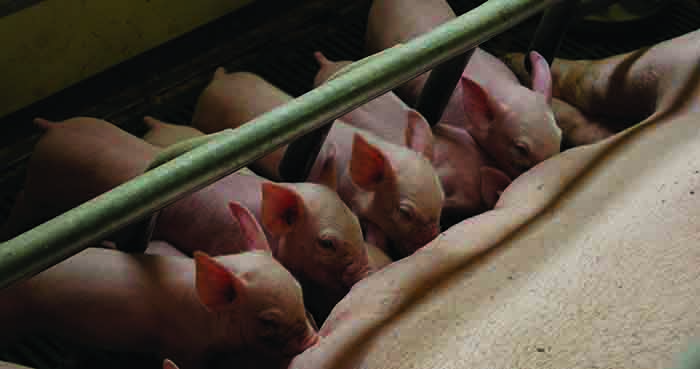A team of researchers have delivered a world first after seven healthy cloned piglets were born to a surrogate mother in March of this year, according to an article in Interesting Engineering.
The researchers, from the College of Artificial Intelligence (CAI) at Nankai University in China, have successfully developed a fully automated method to create pig clones, which eradicates the need for human intervention in the delicate process of cloning.
Liu Yaowei, an assistant research fellow at Nankai University, believes that the AI-powered automated pig cloning method can significantly increase China’s pig population and make the country completely self-sufficient in pork production; as it can also be used to produce lab-grown meat, which is currently produced from cultured cells prepared under laboratory conditions.
The CAI research team produced the world’s first cloned animals, manipulated by the micro-robotic system, in 2017; a process which required effort from human contributors. With the AI cloning method, Mr Yaowei suggests that the success rate of robotic pig cloning is much higher, as ‘they don’t make any errors or damage the cells during the process’ – as humans do.
Presently, a popular animal cloning technique is somatic cell nuclear transfer (SCNT), which requires a human to remove the nucleus from an animal’s egg cell (capable of producing any tissue to facilitate cloning) so that a somatic cell can be put in its place. However, during this process, the delicate cells can often be damaged or contaminated due to human involvement.
Therefore, to prevent manual errors, the CAI researchers devised a fully-automated cloning process. Mr Yaowei said, “our AI-powered system can calculate the strain within a cell and direct the robot to use minimal force to complete the cloning process, which reduces the cell damage caused by human hands.”
With China currently the largest pork producer and consumer in the world, with a pig population of more than 400 million and pork consumption between 30 and 35 kg per capita, according to Interesting Engineering, this new cloning method would support a Chinese bid to reduce their pork imports and become more self-sufficient.




